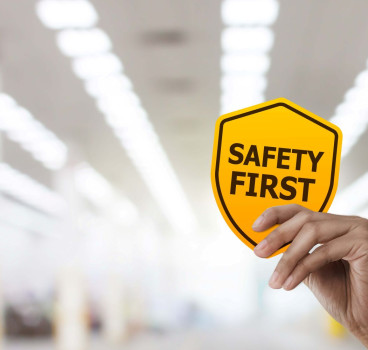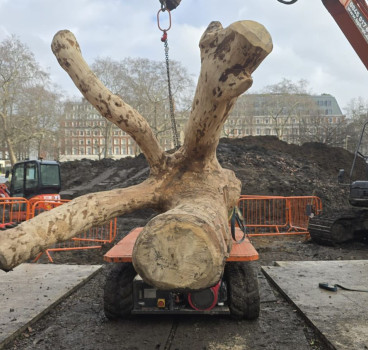The impact of organised crime on South Africa’s construction industry
In recent years, South Africa’s construction industry has faced a growing crisis from organised crime groups. The so-called "construction mafia" have created an environment of fear and uncertainty, using extortion, violence and intimidation to force building companies and workers into submission. It’s a problem that has led to financial losses and stalled infrastructure development as well as endangering the lives of those who work on construction sites across the country, writes John Ridgeway.
The "construction mafia" in South Africa began to gain attention around 2014. Organised crime groups, largely gang-affiliated, began to infiltrate the construction industry, particularly in government-funded infrastructure projects. These gangs use tactics commonly associated with traditional mafia activities, including demands for "protection fees" or a share of project budgets, especially on public works and housing projects. If construction companies do not comply, these groups often resort to violent methods, which can include assault, threats to workers and management, or property damage.
In many cases, gangs demand up to 30% of a project's value as a fee. While they justify these demands under the guise of community involvement or job creation for locals, their true aim is control over lucrative contracts and revenue streams. Often, these gangs insist that contractors employ their affiliates or members from local communities, thereby ensuring a portion of wages and influence within the project. The most notorious cases have been reported in regions such as Gauteng, KwaZulu-Natal, and the Western Cape, where these gangs operate with near impunity, undermining efforts to complete vital projects
The presence of the construction mafia has a twofold effect on the industry. First, workers, engineers, and managers on-site are exposed to frequent intimidation and life-threatening situations, which detracts from productivity and morale. Companies operating in regions heavily affected by these gangs must make difficult choices - either comply with the gangs’ demands or face the risk of shutting down projects. In Cape Town, contractors on several housing developments abandoned projects entirely due to sustained harassment and violence from local gangs, some of which have close ties with influential criminal networks
These disruptions create a dangerous environment where workers feel unsafe and projects are often delayed or abandoned, limiting the potential for job creation and the overall development of infrastructure. The issue also has broader repercussions for the construction companies themselves. Forced shutdowns and delays have contributed to financial strain, project failures and even bankruptcies in some cases. As such, the situation is increasingly seen as a crisis that requires immediate, decisive action from the government and law enforcement agencies.
The economic repercussions of the construction mafia are staggering. According to reports, the construction sector has seen projects worth around R63 billion delayed or halted due to gang-related disruptions. South Africa’s infrastructure projects, many of which aim to improve housing, transportation and public services, have been significantly affected. This impacts local communities that rely on these developments for improved quality of life and essential services.
A further economic cost comes in the form of disincentivising investment. Foreign and domestic investors view the construction industry as fraught with risk, limiting South Africa's ability to attract funds for large-scale infrastructure projects. For a nation already struggling with unemployment and inequality, the deterrent to infrastructure investment is a major economic setback. Without confidence in the industry’s safety and security, the country faces difficulties in attracting private sector involvement, which could lead to reduced infrastructure output, slower economic growth and a lack of essential public services
Government and law enforcement response
In response to the growing threat, the South African government has taken steps to address the construction mafia's influence. Efforts led by the Infrastructure Built Anti-Corruption Forum (IBACF) and the South African Police Service (SAPS) have led to the establishment of task forces and targeted arrests. In 2023 alone, over 700 arrests were made in connection with construction site crimes, and several convictions have been secured. The government has also formed a National Priority Committee on Extortion and Violence at Economic Sites, which collaborates with various agencies to coordinate a response to this issue
In some provinces, government officials, such as the MEC for Public Works and Infrastructure, have publicly condemned the construction mafia and committed to investigating and prosecuting those involved. The Western Cape and KwaZulu-Natal have been focal points for government crackdowns, with authorities vowing to increase police presence at construction sites and expand protections for workers. In some cases, however, officials who have taken a strong stance against the mafia have faced personal threats and intimidation, underscoring the high stakes involved in combating these powerful groups.
The IBACF, established in 2020, is one of the primary bodies responsible for monitoring and investigating corruption within the construction sector. Comprised of government representatives, civil society leaders and construction industry stakeholders, the forum aims to establish a coordinated strategy for combating the influence of the construction mafia and protecting public infrastructure projects.
Working closely with the SIU, the IBACF has focused on asset recoveries, criminal prosecutions, and anti-corruption measures. Through their work, several key arrests have been made, including high-profile figures linked to gang-affiliated construction entities. These efforts are crucial in restoring some degree of accountability to the construction sector, although the IBACF acknowledges that dismantling the construction mafia will require sustained efforts and further support from law enforcement
In addition to the economic implications, the construction mafia’s influence has a deep social impact on communities across South Africa. Projects intended to benefit underserved communities - such as housing developments, schools, and hospitals - are often the most affected. When these projects are stalled or abandoned due to gang interference, residents are left without access to essential infrastructure, perpetuating a cycle of poverty and inequality.
The construction mafia’s assertion of control over local labour hiring also stokes division within communities, as individuals not affiliated with the gangs may be excluded from employment opportunities. This fosters resentment and fractures community relations, creating a sense of lawlessness and fostering an environment where crime can flourish.
The need for comprehensive solutions
While recent arrests and government responses mark progress, the scale of the construction mafia problem requires a more comprehensive approach. Tackling organised crime in the construction industry is not just about enforcing the law on specific sites but addressing the root causes of why these groups have gained such influence.
Increased security at construction sites and dedicated task forces are essential, but there is also a need for a justice system that can swiftly process and convict individuals involved in organised crime. The government and private sector also need to work more closely with communities to ensure that legitimate job opportunities are available, reducing the need for individuals to engage with criminal groups. By fostering community trust and addressing local employment needs, authorities can undermine the construction mafia’s recruiting power.
In addition, ensuring that government contracts are awarded transparently and managed carefully can reduce the construction mafia’s ability to infiltrate projects. Increased oversight and accountability in contract management can help deter corruption and make it harder for gangs to exploit government-funded projects. Informing communities about the damage caused by the construction mafia and encouraging them to report crimes can also strengthen collective resistance against these groups.
The construction mafia’s impact on South Africa’s infrastructure sector is severe, affecting not only the industry but also the economic and social fabric of the nation. Yet, with concerted government action, robust community involvement and strong law enforcement, there is potential to dismantle these organised crime networks and create a safer environment for construction workers and companies.
Restoring public confidence in the construction industry is essential to attract future investment, generate employment and ensure that South Africans benefit from improved infrastructure. By understanding the nature of the construction mafia and supporting ongoing efforts to counteract its influence, the country can build a more resilient, secure and prosperous society.
Additional Blogs

4 Must-Follow Health and Safety Habits for the Modern Jobsite
The risks in modern jobsites are constant. Falls, chemical exposure and heat illnesses continue to injure workers across construction and related industries each year. The best way to reduce those...
Read moreDesigning multi-functional outdoor spaces through the power of Play Trees
Outdoor spaces are increasingly expected to do more than simply look good. They must invite interaction, support wellbeing, encourage movement and foster connection across generations. In schools,...
Read more

4 Ways Resilient Construction Gets it Right and 4 Ways It’s Still Falling Short
Climate change is becoming increasingly disruptive as the weather becomes stronger and more unpredictable. These circumstances are constantly pressuring the construction industry, which has had to...
Read more